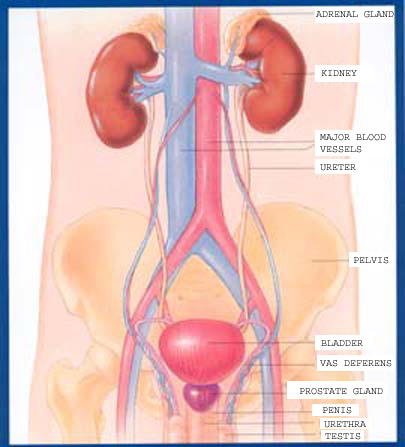Often they are used interchangeably. Diseases of the genital and urinary system are treated by Urologists.
Urologic Oncology deals with tumors (cancerous, and non-cancerous) of the genital and urinary system. Examples: Cancers of Adrenals, Kidneys, Ureters, Bladder, Prostate, Testes, and external genitalia etc.
They are used interchangeably. E.D. means Erectile Dysfunction. It can manifest in males, as well as in females.
Of course. Depending on their chemical composition, they could be treated by medication, by laser and/or shock-wave lithotripsy. Sometimes an endo-urologic procedure may be appropriate, if the stone burden is significant.
Yes. It tends to run in families, especially like yours with a strong family history. See your family physician for advice.
No. Etiology of infertility is almost equally distributed in males, and females. It needs to be investigated by urologist and gynaecologist. Sometimes an endocrinologist may also need to be involved.
Surgery performed with a thin endoscope (telescope) inserted through a small incision which allows the physician to view and examine the organs in the abdominal and pelvic cavity.
Yes. It is considered minimally invasive. Some other examples are: intertitial laser coagulation for benign prostatic hypertrophy (BPH) and cryo-ablation of solid tumors, etc.
Some of the benefits are: dramatic post-operative recovery, reduced post-operative pain and a shorter hospital stay. There is a quicker return to daily activities, less scarring and less blood loss.
Yes. You are absolutely correct.
Inserting endoscopic instruments through tiny holes and treating stones, obstruction or small growths by either laser or lithotripsy. etc.
It is a technique of destroying cancer cells by freezing. This technique is used in highly selective cases. This is considered as minimally invasive surgery.
It depends on the PSA level, biopsy grading of the cancer, and the age of the patient. Discuss all the alternatives with your physician.
It is appropriate if the patient is relatively young, with a low PSA, a low grade cancer, and if your physician feels that the cancer is organ-confined.
This procedure is when patients receive plasma expanders and crystalloids instead of a transfusion. However, in a life threatening acute bleeding situation, nothing could replace a blood transfusion. Call for more information.
Yes. Lasers are used to treat stones, strictures, BPH, and various skin lesions.
It depends on the chemical composion, size and location of the stones. Different methods such as laser lithotripsy, endo-urologic procedures, and shock-wave lithotripsy are available. Discuss the options with your physician.
Here are some helpful guidelines. By no means is this a complete list. You should discuss these with your physician for more details.
Adrenal glands:
- CT/MRI, and appropriate blood tests.
Kidneys:
- Renal sonogram/CT scan, urinary cytology.
Ureters:
- I.V.P.(imaging with the dye)/or M.R.Urogram, urinary cytology and sometimes endoscopy (ureteroscopy) with a biopsy may be necessary.
Bladder:
- Bladder sonogram, urinary cytology, endoscopy (cystoscopy) with a biopsy may be necessary.
Prostate:
- A blood test called PSA (prostate specific antigen), digital rectal examination, transrectal ultrasound of the prostate with a needle biopsy.
Urethra:
- Urethrogram (urethal imaging with the dye) and cystoscopy with a biopsy.
Testes:
- Blood tests called "tumor markers", testicular sonogram, and surgery if a tumor is detected. Discuss with your physician for more information.
Here is an artistic representation of it. Please share it with your family and friends.

